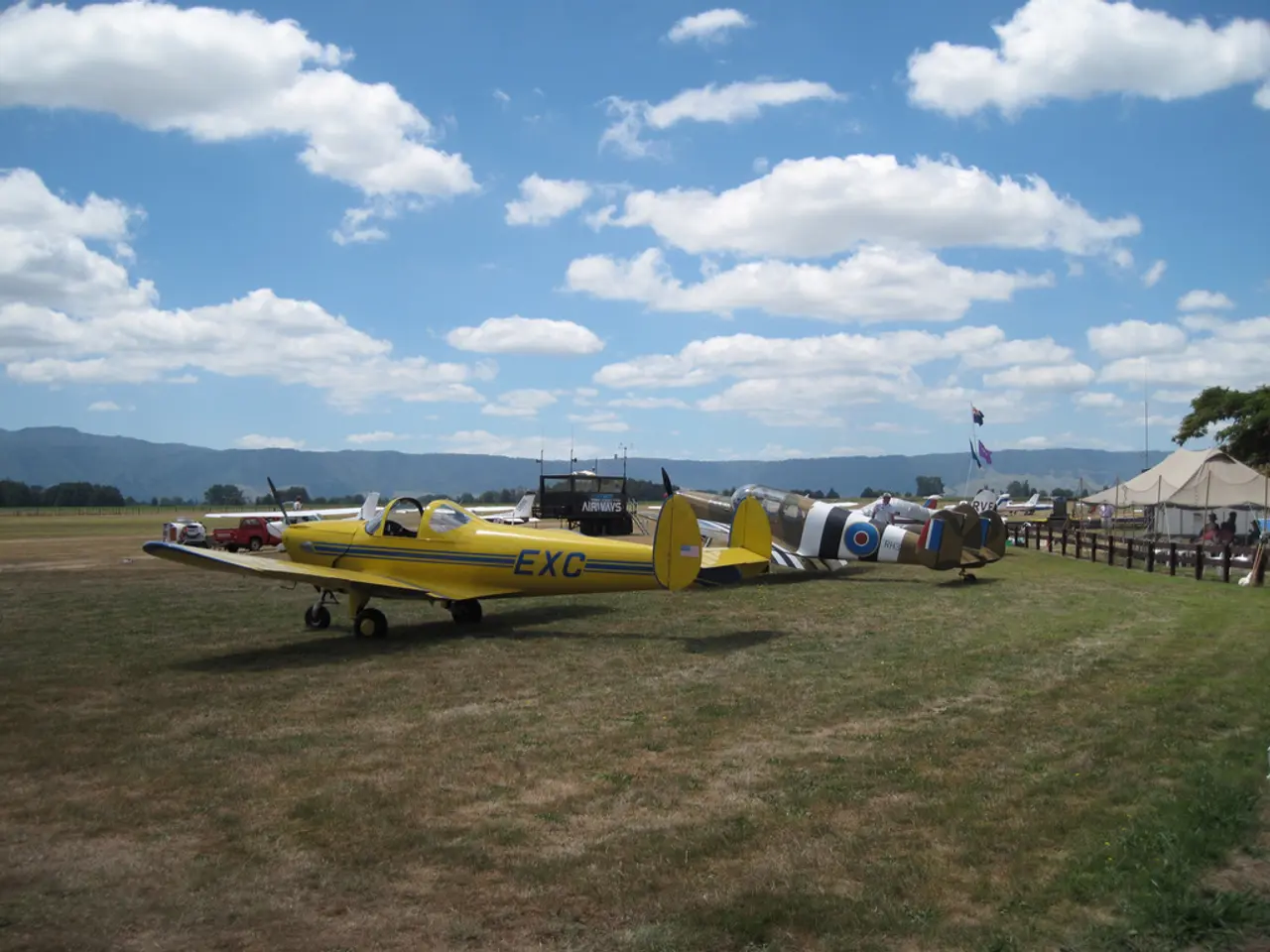Travelers urged to abide by drone regulations, as a hefty fine of $230,000 ensues for non-compliance when venturing abroad
In the vibrant heart of the Spanish Canary Islands, a British traveler learned a costly lesson about the importance of understanding local drone regulations. The incident occurred during a popular festival in Puerto de la Cruz, Tenerife, where only three drones were permitted: the festival's own drone, and two National Police drones for security operations.
The traveler, who was not aware of Spanish drone regulations, decided to fly his camera drone over the bustling festival. His drone was spotted by police and traced back to a four-star hotel, Hotel Las Aguilas. The drone was seized, and the fine he received was due to the flight being illegal and deemed dangerous due to the number of people attending the festival.
The fine, equivalent to around $233,000 / £174,000 / AU$359,000, serves as a stark reminder to anyone planning to fly a drone in Spanish airspace or while traveling to other countries.
Under European Union rules, anyone planning to fly a drone must register as an operator, receive appropriate training, and take out an insurance policy. In the Canary Islands, drone flights over urban areas or crowds require prior authorization, and operators must be registered, trained, insured, and have their drones properly labeled with an operator ID if the drone weighs more than 250 grams or has a camera.
Fines for violating drone laws in the Canary Islands can range from €60 to €225,000, with severe penalties for flying in restricted areas, endangering people, or interfering with airspace. A recent case involved a British tourist who was fined around €200,000 for flying a drone without a license, insurance, or permission during a crowded religious festival with thousands of attendees.
For travelers flying drones in the Canary Islands (and broadly Spain), the following are mandatory: register as a drone operator with AESA, complete online training, obtain civil liability insurance, label the drone with the operator ID, and only fly in approved zones and avoid urban areas, crowds, airports, or protected areas without special authorization.
Other countries like Australia, Thailand, Japan, India, and China also have tightening drone restrictions, generally requiring registration, insurance, and respecting no-fly zones; however, fines and specific rules vary.
The key takeaway for travelers is to research and comply fully with local drone regulations—failure to do so can lead to hefty fines, confiscation of equipment, and legal consequences. In Spain’s Canary Islands, unauthorized drone use near large gatherings or urban areas is particularly risky and heavily penalized.
This article was originally reported by The Independent and further detailed by Digital Camera World, written by James Artaius, a journalist with 25 years of experience in the photography industry. The article also provides recommendations for the best drones for beginners, kids, and those on a budget.
- A British traveler was fined an immense sum, equivalent to around $233,000 / £174,000 / AU$359,000, for flying a camera drone over a bustling festival in Puerto de la Cruz, Tenerife, Spain, despite local drone regulations prohibiting such activities.
- For travelers in the Canary Islands, it's mandatory to register as a drone operator with AESA, complete online training, obtain civil liability insurance, label the drone with the operator ID, and only fly in approved zones and avoid urban areas, crowds, airports, or protected areas without special authorization.
- The article, originally reported by The Independent and further detailed by Digital Camera World, provides recommendations for the best drones for beginners, kids, and those on a budget, alongside highlighting the importance of complying with local drone regulations to avoid hefty fines, confiscation of equipment, and legal consequences.
- Under European Union rules, anyone planning to fly a drone must register as an operator, receive appropriate training, and take out an insurance policy. In the Canary Islands, fines for violating drone laws can range from €60 to €225,000, with severe penalties for flying in restricted areas, endangering people, or interfering with airspace.
- Other countries like Australia, Thailand, Japan, India, and China also have tightening drone restrictions, generally requiring registration, insurance, and respecting no-fly zones; however, fines and specific rules vary, making it essential for travelers to research and understand local drone regulations before flying.




